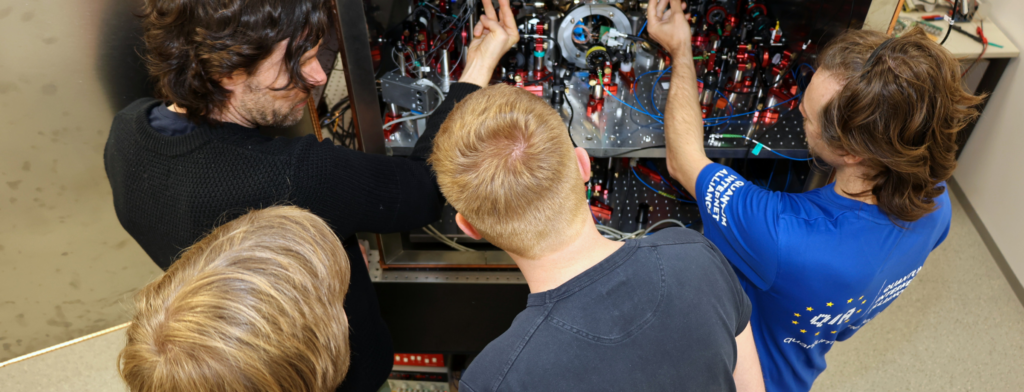Career
Internship at Sorbonne University/CNRS – LIP6
Open to M2 level in Physics or Engineering students | Internship period: to be agreed between host and intern
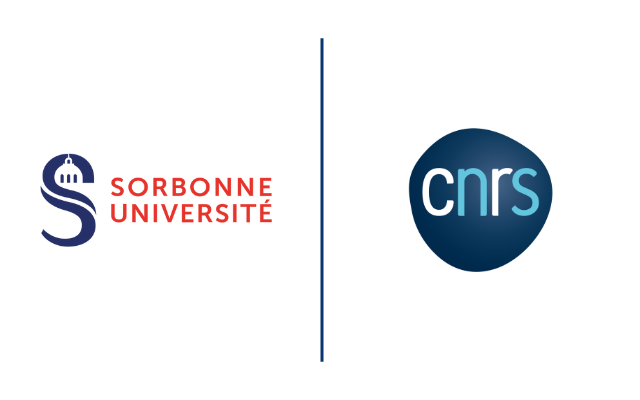
Research internship offer: Multipartite photonic entanglement for advanced quantum networking
In our laboratory, we explore advanced quantum communication and cryptographic protocols relevant for use in real-world scenarios. The use of quantum resources typically guarantees properties such as security, privacy or anonymity for such protocols. Leveraging state-of-the-art multipartite entangled states, we have successfully demonstrated an important functionality for several such protocols, namely quantum certification[1]. We also wish to study further protocols, including private networks of sensors [2] and quantum e-voting [3]. Such demonstrations will enrich the applications of the emerging quantum internet.
Our high-performance, compact multipartite entangled photon source is based on spontaneous parametric down-conversion in a nonlinear crystal [4]. The entangled photons are carefully manipulated and routed via a setup including both free space and fiber optic components, to ensure high fidelity and brightness, making it suitable for quantum networking.
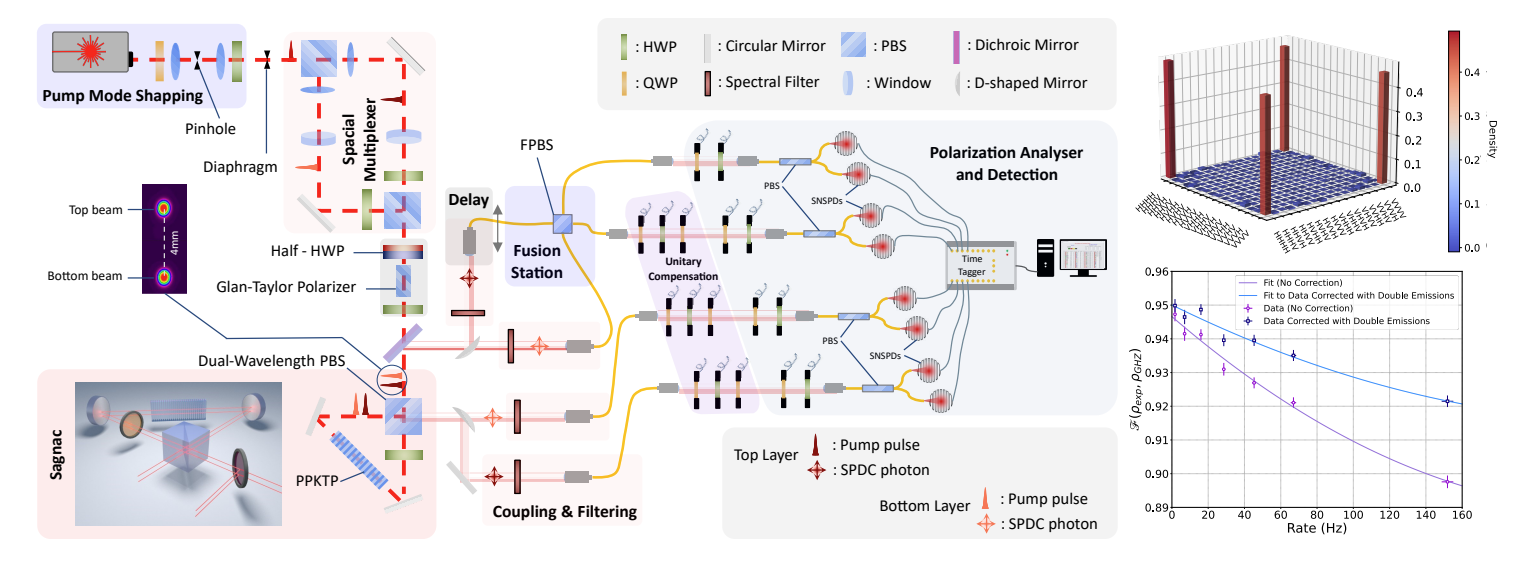
The multipartite entangled photon source setup built in LIP6 laboratory
During this internship, we will explore the experimental aspects of quantum networking with multipartite entanglement. We will focus in particular on the optimization of our source for the demonstration of the e-voting protocol, or, depending on the advances in our laboratory until the time of the internship, of further protocols linked to anonymous message transmission, which are more demanding. Depending on the candidate’s interests, it will also be possible to additionally study theoretical aspects, involving the analysis and tailoring of the protocol under study to the experimental constraints, by optimizing the underlying assumptions to enhance its practical feasibility and robustness.
The internship is appropriate for M2 level in Physics or Engineering students. It can be followed by a PhD thesis.
The internship will take place at the Quantum Information group of the LIP6 laboratory.
References
[1] Laura dos Santos Martins et al. Experimental Sample-Efficient and Device-Independent GHZ State Certification. 2024. arXiv: 2407.13529 [quant-ph]. url: https://arxiv.org/abs/2407. 13529.
[2] Nathan Shettell, Majid Hassani, and Damian Markham. Private network parameter estimation with quantum sensors.
2022. eprint: arXiv:2207.14450.
[3] Federico Centrone, Eleni Diamanti, and Iordanis Kerenidis. “Quantum Protocol for Electronic Voting without Election Authorities”. In: Phys. Rev. Appl. 18 (1 2022), p. 014005. doi: 10 . 1103 / PhysRevApplied . 18 . 014005. url: https : / / link .
aps.org/doi/10.1103/PhysRevApplied.18.014005.
[4] Laura dos Santos Martins et al. Realizing a Compact, High-Fidelity, Telecom-Wavelength Source of Multipartite Entangled Photons. 2024. arXiv: 2407 . 00802 [quant-ph]. url: https://arxiv.org/abs/2407.00802.
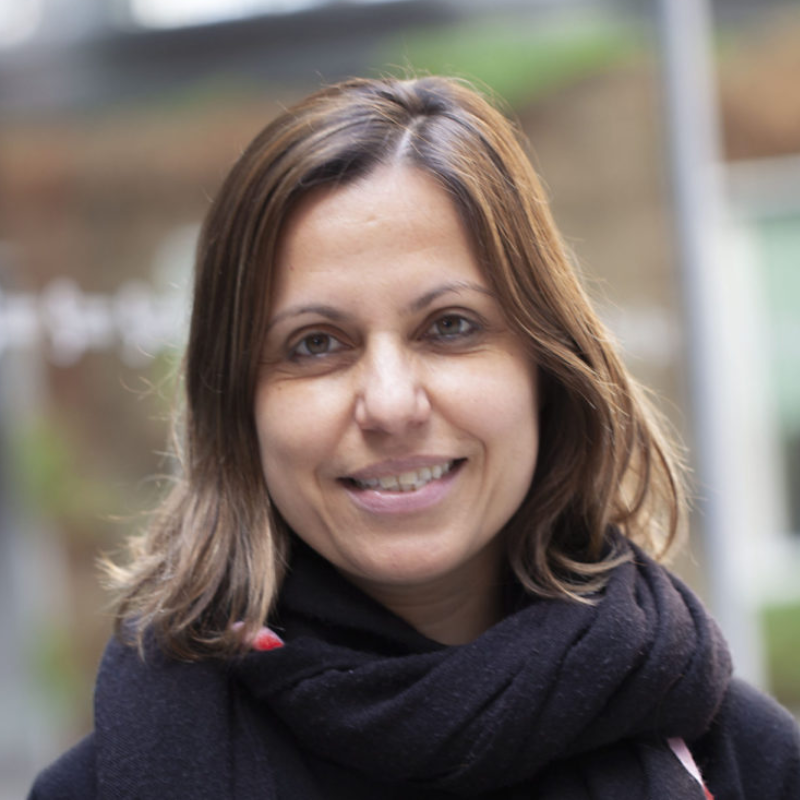
Internship Supervisor
Eleni Diamanti, Director of Research
About LIP6 Computer Science Laboratory
LIP6 is a joint research unit (UMR 7606) of Sorbonne University (SU) and the National Centre for Scientific Research (CNRS). From electronics to AI, quantum information, IT security, computer algebra and systems/networks, our lab covers nearly all areas of computer science. Precisely, it is dedicated to modeling and solving fundamental, application-driven problems, as well as implementing and validating solutions through academic and industrial partnerships.
Interested in this internship? Send an application on or before 31 May 2025!
To submit an application, send your CV (max 2 pages) and motivation letter to info@quantuminternetalliance.org on or before 31 May 2025. Kindly write “INTERNSHIP APPLICATION” on the subject line of your email.
*List of eligible countries: Belgium, Bulgaria, Croatia, Cyprus, Czechia, Estonia, Finland, Greece, Hungary, Ireland, Latvia, Lithuania, Malta, Poland, Romania, Slovakia, Slovenia, Sweden
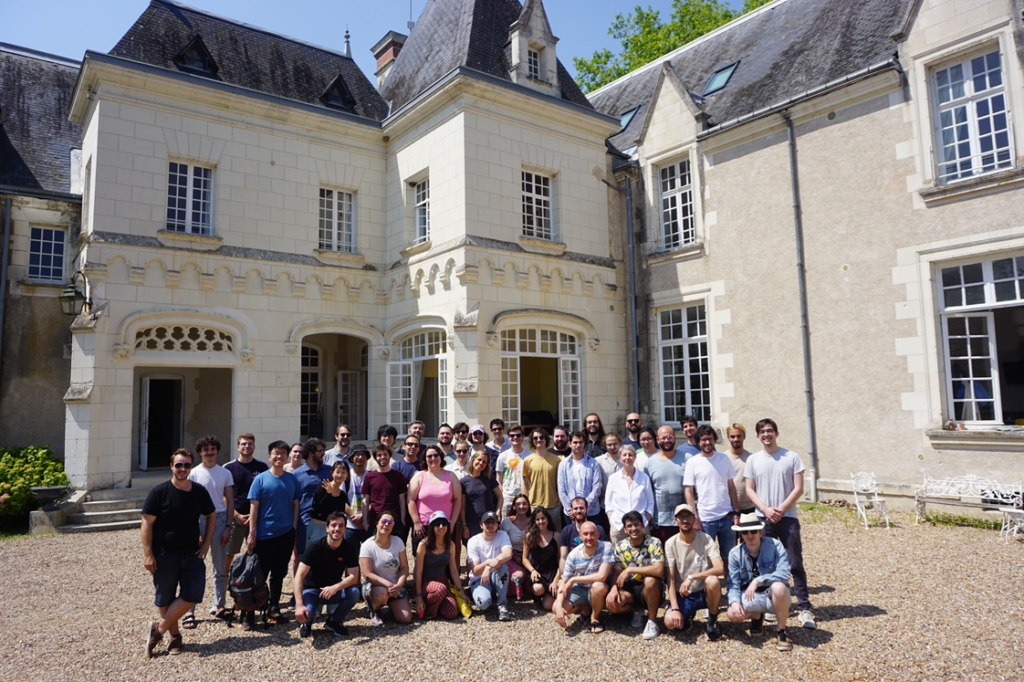
In the photo: LIP6 (Sorbonne Université - CNRS) led by Dr. Eleni Diamanti
Sorbonne University, a prestigious academic institution in Paris, and CNRS, one of the world’s leading research institutions, contribute to QIA through the Laboratoire d’Informatique de Sorbonne Université (LIP6) and Laboratoire Kastler Brossel (LKB).
